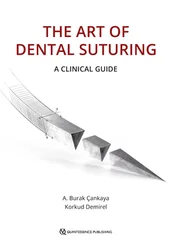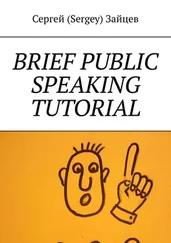was both correct and powerful. He concentrated all our attention on the
words that meant something, instead of holding it up on such words as
_of this_, _a_, _of_, _It's_.
What would you think of a guide who agreed to show New York to a
stranger and then took up his time by visiting Chinese laundries and
boot-blacking "parlors" on the side streets? There is only one excuse
for a speaker's asking the attention of his audience: He must have
either truth or entertainment for them. If he wearies their attention
with trifles they will have neither vivacity nor desire left when he
reaches words of Wall-Street and skyscraper importance. You do not dwell
on these small words in your everyday conversation, because you are not
a conversational bore. Apply the correct method of everyday speech to
the platform. As we have noted elsewhere, public speaking is very much
like conversation enlarged.
Sometimes, for big emphasis, it is advisable to lay stress on every
single syllable in a word, as _absolutely_ in the following sentence:
I ab-so-lute-ly refuse to grant your demand.
Now and then this principle should be applied to an emphatic sentence by
stressing each word. It is a good device for exciting special
attention, and it furnishes a pleasing variety. Patrick Henry's notable
climax could be delivered in that manner very effectively:
"Give--me--liberty--or--give--me--death." The italicized part of the
following might also be delivered with this every-word emphasis. Of
course, there are many ways of delivering it; this is only one of several
good interpretations that might be chosen.
Knowing the price we must pay, the sacrifice we must make, the
burdens we must carry, the assaults we must endure--knowing full
well the cost--yet we enlist, and we enlist for the war. For we
know the justice of our cause, and _we know, too, its certain
triumph._
--_From "Pass Prosperity Around,"_ by ALBERT J. BEVERIDGE,
_before the Chicago National Convention of the Progressive Party_.
Strongly emphasizing a single word has a tendency to suggest its
antithesis. Notice how the meaning changes by merely putting the
emphasis on different words in the following sentence. The parenthetical
expressions would really not be needed to supplement the emphatic words.
_I_ intended to buy a house this Spring (even if you did not).
I _INTENDED_ to buy a house this Spring (but something
prevented).
I intended to _BUY_ a house this Spring (instead of renting as
heretofore).
I intended to buy a _HOUSE_ this Spring (and not an automobile).
I intended to buy a house _THIS_ Spring (instead of next
Spring).
I intended to buy a house this _SPRING_ (instead of in the
Autumn).
When a great battle is reported in the papers, they do not keep
emphasizing the same facts over and over again. They try to get new
information, or a "new slant." The news that takes an important place in
the morning edition will be relegated to a small space in the late
afternoon edition. We are interested in new ideas and new facts. This
principle has a very important bearing in determining your emphasis. Do
not emphasize the same idea over and over again unless you desire to lay
extra stress on it; Senator Thurston desired to put the maximum amount
of emphasis on "force" in his speech on page 50. Note how force is
emphasized repeatedly. As a general rule, however, the new idea, the
"new slant," whether in a newspaper report of a battle or a speaker's
enunciation of his ideas, is emphatic.
In the following selection, "larger" is emphatic, for it is the new
idea. All men have eyes, but this man asks for a _LARGER_ eye.
This man with the larger eye says he will discover, not rivers or safety
appliances for aeroplanes, but _NEW STARS_ and _SUNS_. "New stars and
suns" are hardly as emphatic as the word "larger." Why? Because we
expect an astronomer to discover heavenly bodies rather than cooking
recipes. The words, "Republic needs" in the next sentence, are emphatic;
they introduce a new and important idea. Republics have always needed
men, but the author says they need _NEW_ men. "New" is emphatic because
it introduces a new idea. In like manner, "soil," "grain," "tools," are
also emphatic.
The most emphatic words are italicized in this selection. Are there any
others you would emphasize? Why?
The old astronomer said, "Give me a _larger_ eye, and I will
discover _new stars_ and _suns_." That is what the _republic
needs_ today--_new men_--men who are _wise_ toward the _soil_,
toward the _grains_, toward the _tools_. If God would only raise
up for the people two or three men like _Watt_, _Fulton_ and
_McCormick_, they would be _worth more_ to the _State_ than that
_treasure box_ named _California_ or _Mexico_. And the _real
supremacy_ of man is based upon his _capacity_ for _education_.
Man is _unique_ in the _length_ of his _childhood_, which means
the _period_ of _plasticity_ and _education_. The childhood of a
_moth_, the distance that stands between the hatching of the
_robin_ and its _maturity_, represent a _few hours_ or a _few
weeks_, but _twenty years_ for growth stands between _man's_
cradle and his citizenship. This protracted childhood makes it
possible to hand over to the boy all the _accumulated stores
achieved_ by _races_ and _civilizations_ through _thousands_ of
_years_.
--_Anonymous_.
You must understand that there are no steel-riveted rules of emphasis.
It is not always possible to designate which word must, and which must
not be emphasized. One speaker will put one interpretation on a speech,
another speaker will use different emphasis to bring out a different
interpretation. No one can say that one interpretation is right and the
other wrong. This principle must be borne in mind in all our marked
exercises. Here your own intelligence must guide--and greatly to your
profit.
1. What is emphasis?
2. Describe one method of destroying monotony of thought-presentation.
3. What relation does this have to the use of the voice?
4. Which words should be emphasized, which subordinated, in a sentence?
5. Read the selections on pages 50, 51, 52, 53 and 54, devoting special
attention to emphasizing the important words or phrases and
subordinating the unimportant ones. Read again, changing emphasis
slightly. What is the effect?
6. Read some sentence repeatedly, emphasizing a different word each
time, and show how the meaning is changed, as is done on page 22.
7. What is the effect of a lack of emphasis?
8. Read the selections on pages 30 and 48, emphasizing every word. What
is the effect on the emphasis?
9. When is it permissible to emphasize every single word in a sentence?
10. Note the emphasis and subordination in some conversation or speech
you have heard. Were they well made? Why? Can you suggest any
improvement?
11. From a newspaper or a magazine, clip a report of an address, or a
biographical eulogy. Mark the passage for emphasis and bring it with you
to class.
12. In the following passage, would you make any changes in the author's
markings for emphasis? Where? Why? Bear in mind that not all words
marked require the same _degree_ of emphasis--_in a wide variety of
emphasis, and in nice shading of the gradations, lie the excellence of
emphatic speech_.
Читать дальше












